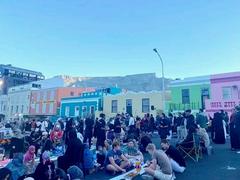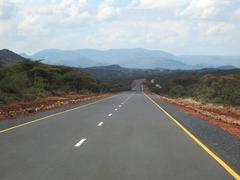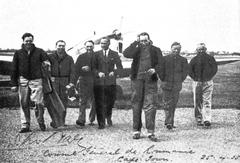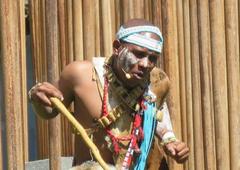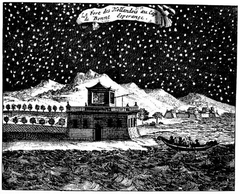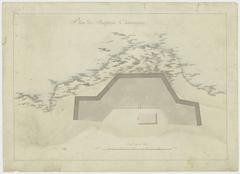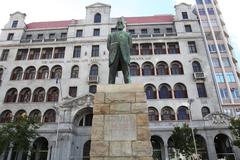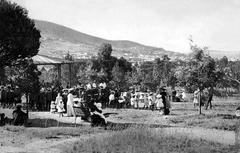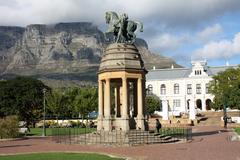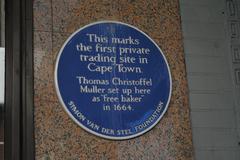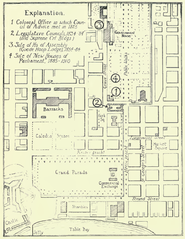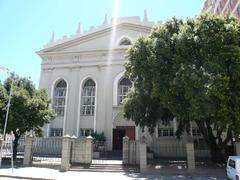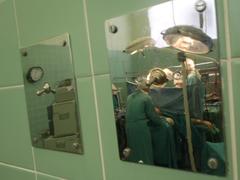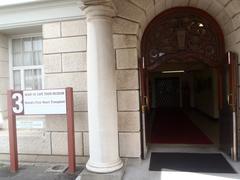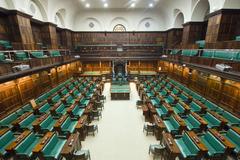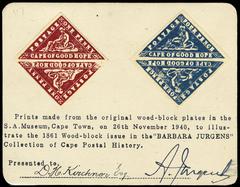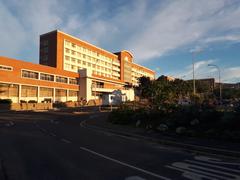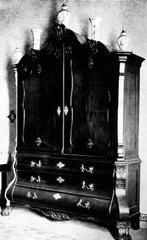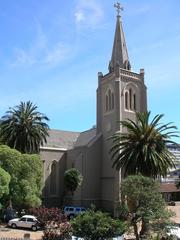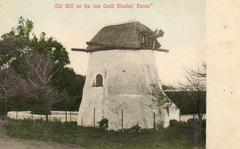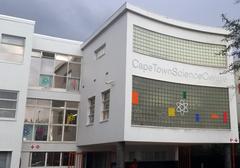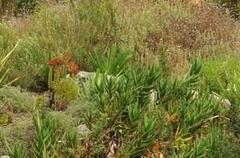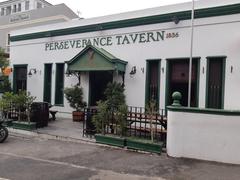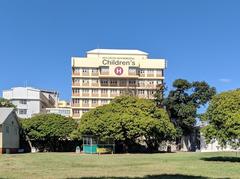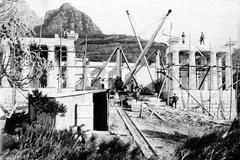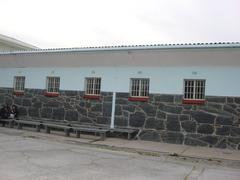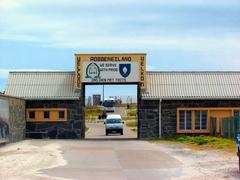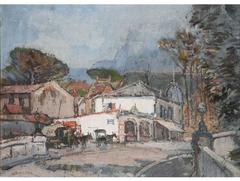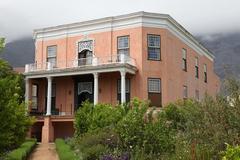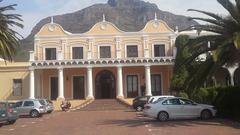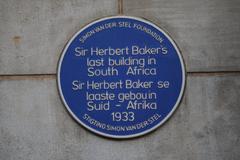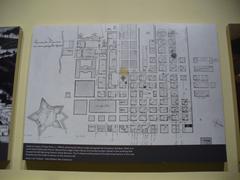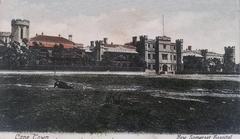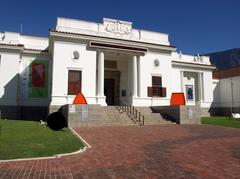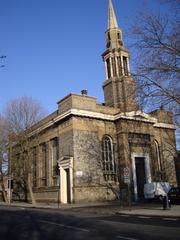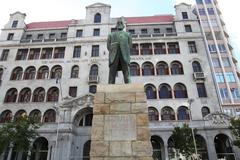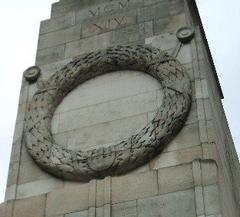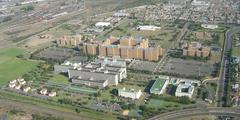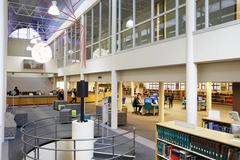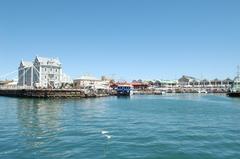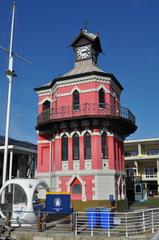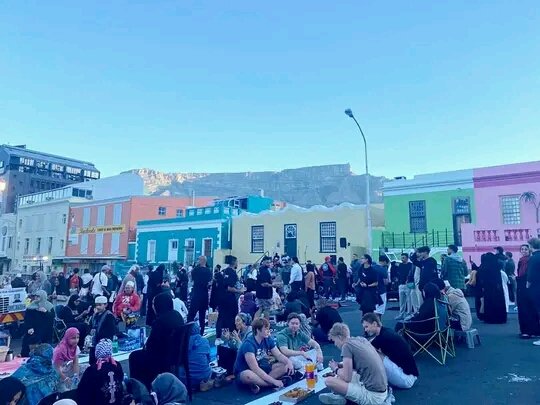
Bo-Kaap Museum Visitor Guide
Date: 18/07/2024
Introduction
Table of Contents
- Introduction
- Early Beginnings and the Birth of a Community
- From Rental Houses to a Cultural Haven
- A Museum Emerges: Preserving Heritage for Future Generations
- Significance of the Bo-Kaap Museum
- Visiting the Bo-Kaap Museum
- Special Events and Guided Tours
- FAQ
- Conclusion
Early Beginnings and the Birth of a Community
The story of the Bo-Kaap Museum is intricately woven with the history of the Bo-Kaap itself. The area, formerly known as Waalendorp, traces its roots back to the 1760s when it was leased out by European settlers. This period saw the arrival of a significant number of slaves from South and Southeast Asia, referred to as ‘Cape Malays.’ These individuals, predominantly Muslim, brought with them their diverse cultures, traditions, and Islamic faith, leaving an indelible mark on the social fabric of Cape Town.
From Rental Houses to a Cultural Haven
The Bo-Kaap Museum is housed in a building with its own fascinating past. Constructed in the late 18th century, 71 Wale Street represents a typical Cape Town house of that era. Originally one of many rental properties owned by Jan de Waal, the building witnessed the evolution of the Bo-Kaap from a humble dwelling place for slaves and artisans to a vibrant community brimming with life and tradition.
A Museum Emerges: Preserving Heritage for Future Generations
The concept of a museum dedicated to showcasing the unique cultural heritage of the Bo-Kaap began to take shape in the 1970s. Recognizing the historical and cultural significance of the area, the South African government purchased several properties in the Bo-Kaap, including 71 Wale Street. This marked a turning point, paving the way for the establishment of a museum that would serve as a repository of the community’s rich past.
In 1978, the Bo-Kaap Museum opened its doors to the public. The museum’s mission was clear: to preserve and showcase the cultural heritage of the Cape Muslim community, focusing on the Bo-Kaap. This included both tangible artifacts and intangible aspects of their culture, such as traditions, music, food, and way of life.
Significance of the Bo-Kaap Museum
The Bo-Kaap Museum holds immense significance for a multitude of reasons:
-
A Window into the Past: It offers a rare and intimate glimpse into the lives of the early Muslim community in Cape Town. The museum’s collection, meticulously curated, includes furniture, clothing, décor, and everyday household items that paint a vivid picture of life in the Bo-Kaap during the 18th and 19th centuries.
-
Celebrating Resilience and Resistance: The museum stands as a testament to the resilience of the Cape Malay community. Despite facing oppression and discrimination, they held onto their cultural identity, passing down their traditions and stories through generations. The Bo-Kaap Museum serves as a powerful reminder of their struggle and enduring spirit.
-
Architectural Gem: The museum building itself is an exhibit. Its Cape Dutch architecture, with its distinctive gables and vibrant colors, reflects the architectural heritage of the Bo-Kaap and its evolution over time.
-
Cultural Preservation: The Bo-Kaap Museum plays a vital role in preserving the cultural heritage of the Cape Malay community. By showcasing their traditions, stories, and way of life, the museum ensures that their legacy continues to thrive for generations to come.
-
Educational Resource: The museum serves as an invaluable educational resource for locals and tourists alike. It provides insights into the history of slavery in South Africa, the arrival of Islam in the Cape, and the development of a unique cultural identity.
Visiting the Bo-Kaap Museum
-
Visiting Hours: The Bo-Kaap Museum is open Monday to Saturday from 9:30 AM to 4:30 PM. It is closed on Sundays and public holidays.
-
Tickets: Admission fees are affordable, with tickets priced at ZAR 20 for adults and ZAR 10 for children, students, and pensioners. Group discounts are available for pre-booked tours.
-
Travel Tips: The Bo-Kaap Museum is easily accessible by public transport. Nearby parking is available but can be limited during peak hours. Consider visiting during weekdays to avoid crowds.
-
Nearby Attractions: While in the area, explore the colorful streets of Bo-Kaap, visit the Auwal Mosque, and enjoy local cuisine at nearby eateries.
Special Events and Guided Tours
FAQ
-
What are the Bo-Kaap Museum’s opening hours? The museum is open Monday to Saturday from 9:30 AM to 4:30 PM and is closed on Sundays and public holidays.
-
How much are tickets to the Bo-Kaap Museum? Tickets are priced at ZAR 20 for adults and ZAR 10 for children, students, and pensioners. Group discounts are available for pre-booked tours.
-
Is the Bo-Kaap Museum accessible? Yes, the museum is accessible to visitors with mobility impairments. However, some areas of the historical building may have limited accessibility.
Conclusion
The Bo-Kaap Museum remains a vibrant cultural hub, attracting visitors from all over the world. It stands as a symbol of the community’s enduring spirit, rich cultural heritage, and significant contributions to South Africa’s multicultural tapestry. A visit to the Bo-Kaap Museum is not just a journey into the past; it’s an opportunity to connect with a vibrant living culture that continues to thrive in the heart of Cape Town. Plan your visit today and immerse yourself in the history and culture of the Bo-Kaap.
